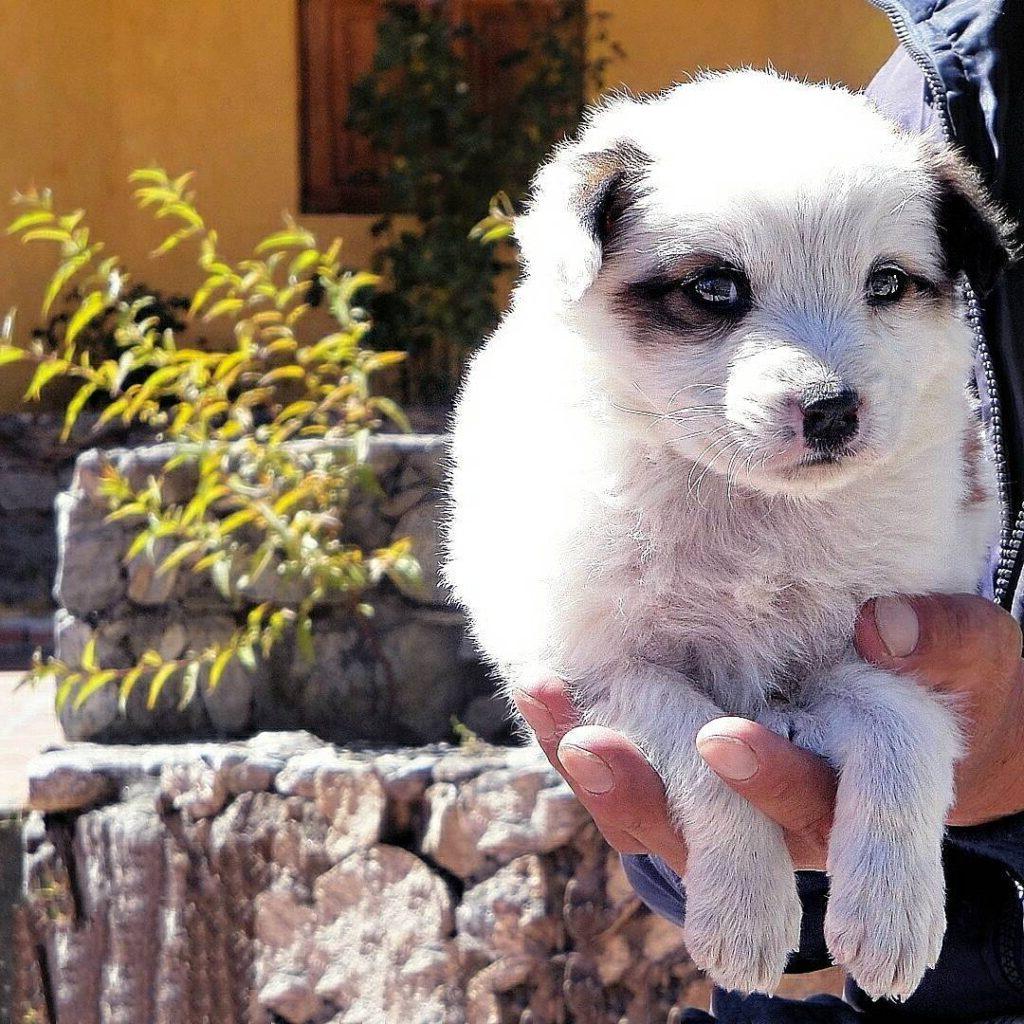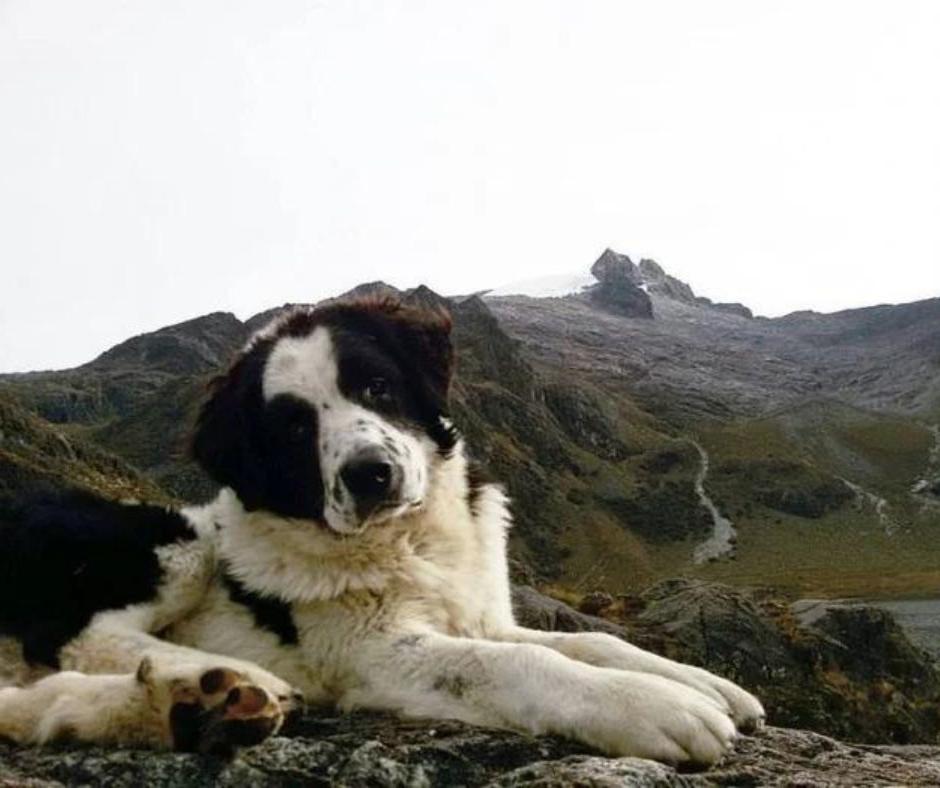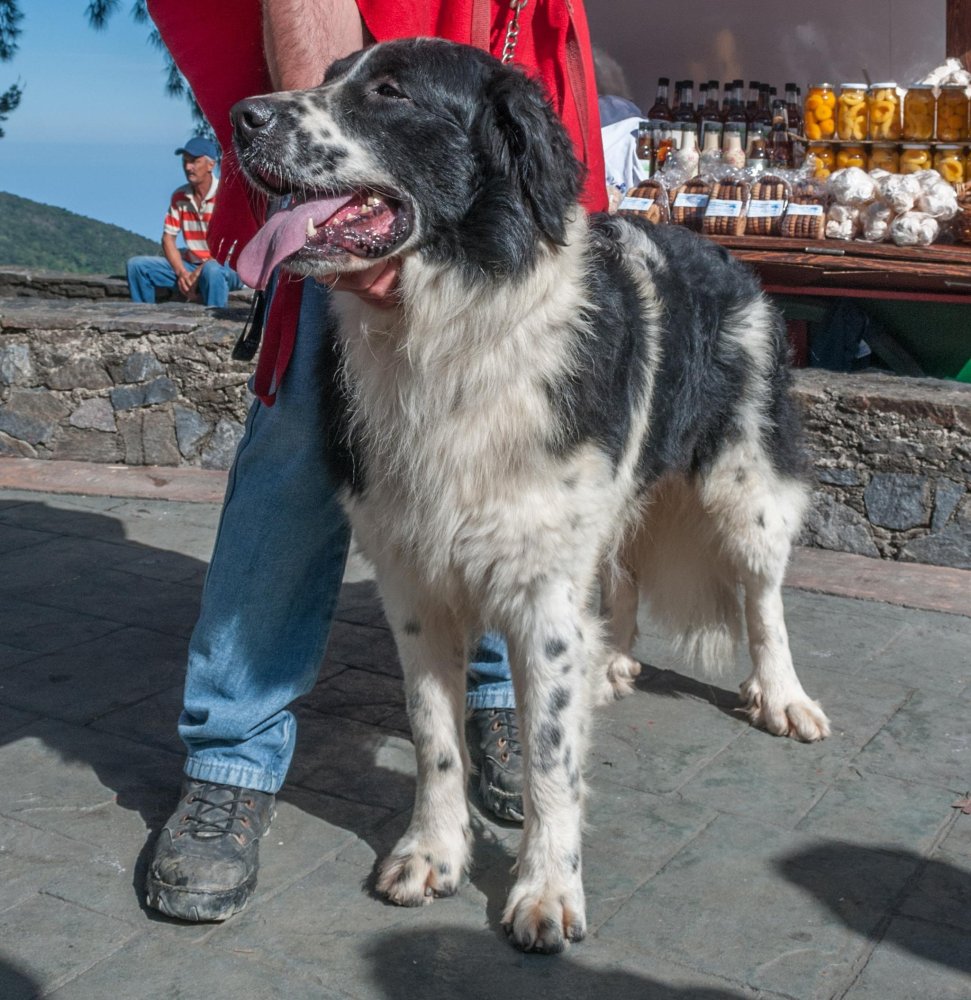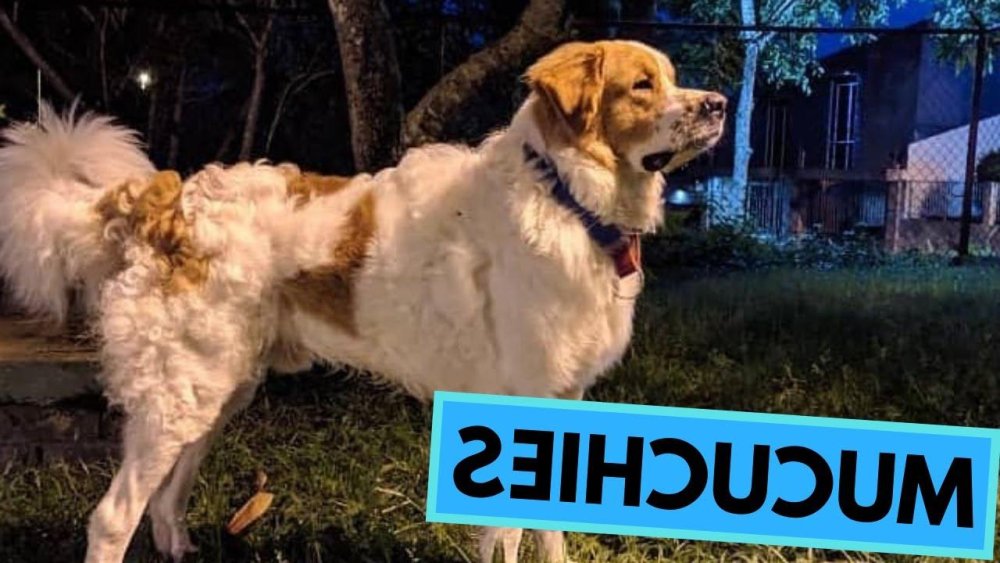- Breed Category: Working dog
- Country of Origin: Venezuela
- Average Height: Males 60-70 cm, Females 55-65 cm
- Average Weight: Males 30-40 kg, Females 25-35 kg
- Average Life Span: 10-14 years
- Grooming Requirements: Moderate, regular brushing needed
- Exercise Requirements: High, needs daily exercise
- Coat Type: Double coat, dense
- Coat Color Variations: White, with possible markings
- Shedding Level: Moderate to high
- Ear Type: Drop ears
- Tail Type: Bushy, carried high
- Temperament: Loyal, protective, intelligent
- Intelligence Level: High
- Barking Tendency: Moderate
- Compatibility with Children: Good, with proper socialisation
- Compatibility with Other Pets: Generally good, if raised together
- Training Ease: Moderate, requires consistent training
- Common Health Issues: Hip dysplasia, eye issues
- Dietary Needs: High-quality diet, balanced nutrition
- Energy Level: High
- Drooling Tendency: Low
- Sensitivity to Weather: Tolerates cold, sensitive to heat
- Overall Maintenance Level: Moderate
- Original Purpose: Livestock guardian
- Year of Recognition by Kennel Clubs: Not widely recognised
- Apartment Friendly: Not ideal, needs space
- Best Suited For: Active families, rural settings
- Cost of Ownership: Moderate to high
- Unique Traits: National dog of Venezuela
- Cultural Significance: Symbol of Venezuelan heritage
Did you know that the Mucuchies dog, Venezuela’s national breed, is renowned for its loyalty and protective nature? This fascinating breed, with its roots tracing back to the Andes, has been a guardian of livestock for centuries. Known for their intelligence and gentle temperament, Mucuchies dogs are not just protectors but also affectionate companions. This article aims to delve into the unique characteristics, rich history, and essential care tips for this remarkable breed. Whether you’re considering adding a Mucuchies to your family or simply curious about their story, you’ll find valuable insights here. Let’s explore what makes the Mucuchies dog a standout among canine companions.
History and Origin of the Mucuchies Dog Breed

Early Development of the Breed
The Mucuchies dog has a rich history that dates back to the 16th century. It is believed that Spanish conquistadors brought their mastiff-type dogs to Venezuela, which then interbred with local dogs. Over time, these dogs adapted to the rugged Andean environment, developing the unique traits we see today. Their thick coats and sturdy build made them perfect for the harsh mountain climate.
Role in Venezuelan Livestock Protection
These dogs have been indispensable in protecting livestock from predators. Farmers relied on their keen instincts and bravery to guard sheep and cattle. Their ability to work independently and make quick decisions in the field has been crucial in safeguarding herds across the Venezuelan highlands.
Key Historical Figures Involved in the Breed’s Creation
Simón Bolívar, the famed liberator of South America, is one of the most notable figures associated with the Mucuchies. He was gifted a Mucuchies dog named Nevado, who accompanied him on many campaigns. This connection further cemented the breed’s status as a symbol of loyalty and courage in Venezuelan culture.
Physical Characteristics of the Mucuchies Dog

Appearance
The Mucuchies dog is a medium to large breed, typically weighing between 30 to 50 kilograms. They have a robust and muscular build, which is essential for their role as protectors. Their coat is thick and weather-resistant, often seen in shades of white, sometimes with patches of grey or black. These distinctive markings add to their striking appearance, making them easily recognisable.
Unique Physical Traits
One of the standout features of the Mucuchies is their strong, protective build. This breed is known for its powerful neck and broad chest, which contribute to their impressive strength and endurance. Their ears are medium-sized and usually hang down, giving them a gentle yet alert expression. The tail is bushy and often carried high, adding to their majestic presence. These physical traits not only enhance their ability to guard but also make them a visually appealing breed.
Temperament and Behaviour of the Mucuchies Dog
Typical Personality Traits
Mucuchies dogs are known for their loyalty and intelligence, making them excellent companions. Their protective nature is deeply ingrained, a trait honed over centuries of guarding livestock. This breed is not just about brawn; they are quick thinkers, able to assess situations and act accordingly. Their intelligence makes them highly trainable, though they do best with consistent and firm guidance.
Suitability as a Family Pet and Working Dog
As family pets, Mucuchies dogs are affectionate and form strong bonds with their human families. They thrive in environments where they have a job to do, whether it’s guarding the home or simply being a loving companion. Their protective instincts make them excellent watchdogs, always alert to any potential threats.
Interaction with Children and Other Animals
With children, Mucuchies dogs are generally gentle and patient, making them suitable for families. They tend to be tolerant and protective, often watching over the little ones. When it comes to other animals, early socialisation is key. With proper introduction, they can coexist peacefully with other pets, though their guarding instincts may sometimes come into play.
Training and Exercise Needs of the Mucuchies Dog

Importance of Early Training and Socialisation
Getting a head start on training and socialisation is crucial for Mucuchies dogs. These intelligent canines benefit from exposure to various environments, people, and other animals early on. This helps them grow into well-rounded adults, ready to handle different situations with ease. Early socialisation also curbs any overly protective tendencies, ensuring they are friendly and approachable.
Recommended Training Techniques
When it comes to training, consistency is key. Positive reinforcement methods work wonders with Mucuchies. They respond well to praise, treats, and playtime as rewards. Keep training sessions short and engaging to maintain their interest. Remember, patience and firmness go a long way in shaping their behaviour.
Daily Exercise Requirements and Activities They Enjoy
Mucuchies dogs are active and need regular exercise to stay healthy and happy. Aim for at least an hour of physical activity each day. They love long walks, hikes, and even a good game of fetch. These activities not only keep them fit but also provide mental stimulation, which is just as important for this intelligent breed.
Health and Lifespan of the Mucuchies Dog

Common Health Issues
Mucuchies dogs are generally healthy, but like any breed, they can be prone to certain health issues. Hip dysplasia is a concern due to their size and build. Regular vet check-ups can help catch this early. They may also face eye problems, so keeping an eye on their vision is important. Regular grooming helps prevent skin issues, especially given their thick coat.
Average Lifespan and Health Tips
On average, Mucuchies dogs live between 10 to 14 years. To keep them healthy, a balanced diet and regular exercise are essential. Their active nature means they thrive with plenty of physical activity. Mental stimulation is just as important, so engage them with interactive toys and training sessions. Regular vet visits ensure they stay in top shape.
Preventative Care Recommendations
- Schedule annual vet check-ups to monitor their overall health.
- Maintain a consistent grooming routine to keep their coat and skin healthy.
- Provide a balanced diet tailored to their age and activity level.
- Ensure they get regular exercise to prevent obesity and related health issues.
- Consider joint supplements if recommended by your vet, especially as they age.
Grooming and Maintenance of the Mucuchies Dog

Coat Care and Grooming Routines
The Mucuchies dog boasts a thick, weather-resistant coat that requires regular attention. A weekly brush is usually enough to keep their coat in top condition, preventing mats and tangles. During shedding seasons, you might need to increase this to a few times a week. A slicker brush or a deshedding tool works wonders in managing their fur.
Shedding and Seasonal Grooming Tips
Like many breeds, Mucuchies experience seasonal shedding, typically in spring and autumn. During these times, a more frequent grooming routine helps manage the extra hair. Bathing should be occasional, as over-bathing can strip their coat of natural oils. When you do bathe them, use a gentle dog shampoo to maintain their skin health.
Regular grooming not only keeps them looking their best but also provides an opportunity to check for any skin issues or parasites. Keeping their coat well-maintained ensures they remain comfortable and healthy, ready to take on their role as loyal companions and protectors.
Diet and Nutrition for the Mucuchies Dog

Nutritional Needs for Optimal Health
Feeding your Mucuchies the right diet is crucial for their health and vitality. These active dogs need a balanced diet rich in proteins, healthy fats, and essential vitamins. High-quality dog food, preferably with meat as the first ingredient, is a good start. Omega-3 and Omega-6 fatty acids are beneficial for their coat and skin health.
Foods to Include and Avoid
Include lean meats, fish, and vegetables in their diet to provide necessary nutrients. Avoid foods high in fillers, artificial preservatives, and excessive grains, as these can lead to allergies or digestive issues. Treats should be given in moderation and should complement their nutritional needs.
Feeding Schedules and Portion Recommendations
Establishing a consistent feeding schedule helps maintain their energy levels. Adult Mucuchies typically do well with two meals a day. Portion sizes depend on their age, weight, and activity level, so it’s wise to consult with your vet for tailored advice. Always ensure fresh water is available to keep them hydrated.
Fun Facts and Trivia about the Mucuchies Dog

Interesting Tidbits about the Breed
The Mucuchies dog is not just a national treasure in Venezuela; it’s a breed with a fascinating backstory. Did you know that these dogs were originally bred to withstand the harsh Andean climate? Their thick coats and robust build are perfect for the cold mountain air. This breed is also known for its incredible endurance, making them excellent companions for long hikes and outdoor adventures.
Another interesting fact is their unique ability to work independently. Mucuchies dogs have been known to make quick decisions in the field, a trait that has been honed over centuries of guarding livestock. This independence doesn’t mean they’re aloof, though. They are incredibly loyal and form strong bonds with their families.
Famous Mucuchies Dogs in Media or History
One of the most famous Mucuchies dogs in history is Nevado, the loyal companion of Simón Bolívar. Nevado accompanied Bolívar on many of his campaigns, becoming a symbol of loyalty and courage. This historical connection has cemented the Mucuchies’ status as a beloved breed in Venezuelan culture.
While not as prevalent in mainstream media as some other breeds, the Mucuchies’ unique story and characteristics make them a fascinating subject for dog enthusiasts and historians alike. Their role in history and their distinctive traits continue to capture the imagination of those who learn about them.
Final Thoughts

The Mucuchies dog is a symbol of loyalty and heritage. This breed’s protective nature and intelligence make it a remarkable companion. Balancing their high energy and grooming needs with their affectionate temperament offers a rewarding experience for dedicated owners. Embracing the Mucuchies means welcoming a piece of Venezuelan culture into your home. Consider this noble breed if you’re ready for a loyal and active canine partner.
